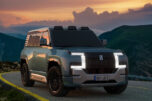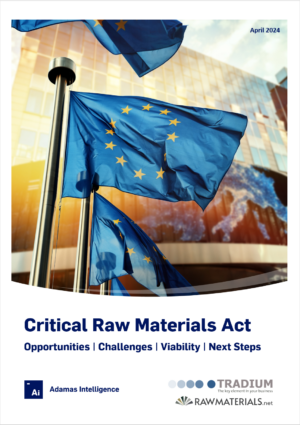The 10 GWh club: The world’s top EV makes

16 makes with double digit deployment
Calendar 2023 was a record-breaking year for the global electric vehicle industry. In 2023, 689.2 GWh was added to the electric car parc, an expansion of just under 200 GWh or 40% compared to 2022.
Some 37% of all power-hours deployed over the past decade were rolled onto roads last year alone and more gigawatt-hours were deployed in 2023 than in the eight years from 2014 to 2021 combined.
There are almost 200 brands offering electric cars around the world. Most of them are Chinese and many with names few would have heard of outside their home market: Trumpchi, Cao Cao, Lingbox, Jetour, Aeolus and Sehol to name a few (although the ranks are thinning with at least four high profile bankruptcies just in the last quarter of 2023 alone).
The proliferation of EV brands is also indicative of Chinese automakers’ fondness for creating spin-off brands to cater to every possible segment and demographic, with Geely, Chery, Dongfeng and more recently BYD particularly guilty in this regard.
This helps explain why, among the top marques worldwide in terms of the combined battery capacity (GWh) steered onto roads last year, Chinese makes appear underrepresented even though the country was responsible for nearly one out of every two EV units sold.
Adamas Intelligence compiled a ranking of the top brands in 2023 and out of the sixteen in the 10 GWh club, only six are Chinese, three of which joined the top ranks for the first time last year.

Tesla, BYD crossed the 100 GWh mark
Tesla was the clear world number one last year, supplying 132.1 GWh of pack power to buyers of its S, 3, X, Y models in 2023, a 37% jump compared to 2022.
The Cybertruck, with its beefy 122 kWh battery pack (and optional 47 kWh range extender), will no doubt haul a good chunk of the EV pioneer’s 2024 power-hours as production and deliveries ramp up.
In second was BYD, which last year became the world’s top EV unit producer thanks to a sales mix that is almost half plug-in hybrid. However, with 101.6 GWh deployed last year, BYD still lagged well behind Tesla when it came to powering up new buyers of its vehicles.
In 2023, Shenzhen-based BYD upped its passenger EV battery capacity deployment by 51% year-over-year, but unlike Tesla, which has a more balanced geographic tireprint, 93% of BYD’s GWh deployment last year was onto roads in China.
Ranked a distant third was GAC Aion, with 31.1 GWh of fresh battery power delivered to buyers last year by the state owned vehicle manufacturer Guangzhou Automobile Group’s EV brand established in 2017.
GAC Aion, which increased its deployment by 75% in 2023, is an even more China-centric make than BYD with virtually all its customer base currently inside the country. GAC also manufactures EVs on behalf of Honda, Mitsubishi and Toyota in China.
Not far behind GAC Aion was VW with 30.3 GWh rolled onto byways and highways around the world last year, up a modest 21% over 2022.
VW’s tally includes VW-badged vehicles sold in China manufactured in partnership with SAIC and FAW. The Volkswagen Group’s overall electrification score, when including its Skoda, Seat, Cupra, Porsche, Bentley, Audi and VW badges, was over 50 GWh in 2023.
Beemer boom, hybrid high
Rounding off the top 5 last year was BMW with 29.1 GWh deployed globally, a 76% surge over 2022, far more power-hours than its traditional rivals Audi and Mercedes, which came in sixth and ninth, respectively.
Despite its mass market Mini-line underperforming its stablemates last year (hauling just 4% or 1.6GWh of BMW’s total onto roads), BMW said the year was the company’s EV tipping point.
BMW also launched the first full electric Rolls Royce, the iconic British marque it acquired in 1998, last year. Chauffeurs around the world now command 7 MWh of Rolls power.
Notably, the deployment growth of Li Auto and Toyota last year (both newcomers to the 10 GWh club) was the greatest among among peers at 189% and 104%, respectively.
The booming performance of Li Auto and Toyota last year are made more remarkable by the fact that the Chinese carmaker only produces PHEVs while the Japanese giant sells almost exclusively HEVs.
EV, Battery and Battery Materials Market Intelligence:
EV Battery Capacity and Battery Metals Tracker
Building on ongoing EV registrations in over 110 countries, our web-based platform helps users track monthly deployment of battery metals and materials, battery capacity, and the ever-evolving competitive landscapes of battery chemistries and cell suppliers.
EV Battery Capacity Monthly
The ‘EV Battery Capacity Monthly’ is a subscription-based report for tracking monthly deployment of passenger EV battery capacity by EV type, region, country, make, model, cell supplier and cell chemistry on an ongoing basis.
EV Battery Lithium Monthly
The ‘EV Battery Lithium Monthly’ is a subscription-based report and data service for tracking end-to-end, market-moving developments across the global EV, battery and lithium supply chain.





